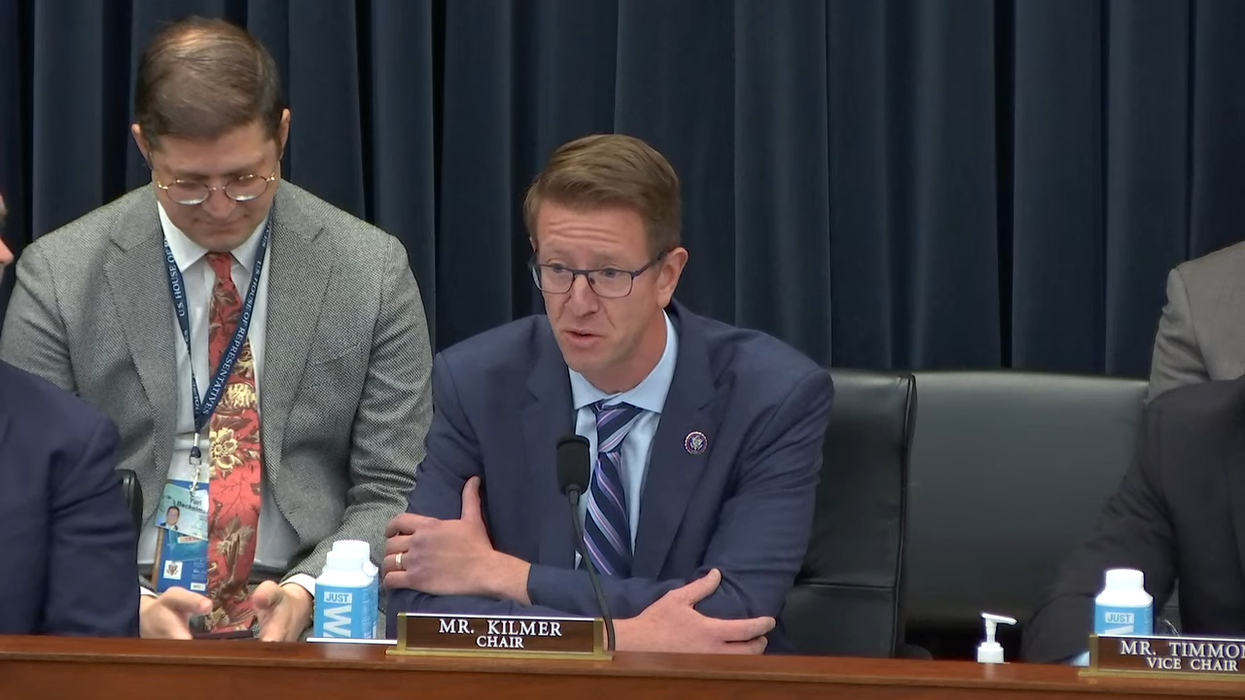Four years ago, the House of Representatives established a committee to recommend changes to how the chamber operates, covering everything from technology to bipartisan resources to constituent services. On Thursday, the committee announced its final set of recommendations, bringing the panel’s total number of proposals to more than 200.
The new recommendations focus on additional steps to improve congressional operations, but also call on the House to begin the work begun by the Select Committee on the Modernization of Congress.
“The 105 recommendations this committee has passed will make a difference well beyond the 117th Congress and that’s the goal of modernization – to put processes and practices in place that will ensure ongoing improvement of the institution,” said the committee’s chairman, Rep. Derek Kilmer. “And I think we made great progress toward that goal.”
Of the 195 recommendations passed by the panel prior to the final set, 88 have been partially implemented and 42 have been fully implemented, according to the committee’s own tracking.
“I feel that we have made a huge impact in healing this institution and I know that our work is not done,” said Vice Chair William Timmons. “But I think the work that we have done thus far is going to pay dividends for years to come.”
The new recommendations call on the House to:
- Require committee meeting times to be entered into a shared scheduling tool.
- Regularly publish a report on lawmakers voting after House votes are supposed to conclude.
- Direct the House Administration and House Rules committees to send bipartisan congressional delegations to visit other nations’ legislatures to learn as well as facilitate collaboration among lawmakers.
- Direct the House Administration Committee to hold voluntary seminars for new lawmakers during their first terms, going beyond post-election orientation.
- Change the management of lawmaker’s travel-related expenses to align better with the policies used by federal agencies and the private sector.
But the committee wants to see modernization continue even after it is disbanded. The members recommended the House Administration Committee include a subcommittee on modernization to allow for continuing, ongoing work, as well as the reappointment of a select committee at least once every eight years.
The committee, which includes an equal number of Democrats and Republicans, was established in January 2019 with a one-year mandate to study Congress and make recommendations on how to make the legislative branch more efficient, effective and transparent. It was renewed for an additional year in February 2020 and then granted two more years in 2021.
Kilmer, a Democrat from Washington, spoke of the productive partnerships he has had with the panel's two Republican vice chairs, first Rep. Tom Graves of Georgia and now Rep. William Timmons of South Carolina.
“I’m a big believer in the notion that the boat moves best when all the oars are in the water, rowing in the same direction. In this place not only is that often not the case but even worse sometimes the oars are out of the water with people actively beating each other over the heads,” Kilmer said. “That has not been the case with William Timmons.”
See all the preceding recommendations from the 116th and 117th Congresses.
“Our work is not done,” Timmons said. “One of our recommendations is to continue this as a subcommittee on House Admin and I’m hopeful that will happen. I believe that will happen.”



















 Senate Committee on Commerce, Science, and Transportation ranking member Sen. Maria Cantwell (D-WA) (R) questions witnesses during a hearing in the Russell Senate Office Building on Capitol Hill on February 10, 2026 in Washington, DC. The hearing explored the proposed $3.5 billion acquisition of Tegna Inc. by Nexstar Media Group, which would create the largest regional TV station operator in the United States. (Photo by Chip Somodevilla/Getty Images)
Senate Committee on Commerce, Science, and Transportation ranking member Sen. Maria Cantwell (D-WA) (R) questions witnesses during a hearing in the Russell Senate Office Building on Capitol Hill on February 10, 2026 in Washington, DC. The hearing explored the proposed $3.5 billion acquisition of Tegna Inc. by Nexstar Media Group, which would create the largest regional TV station operator in the United States. (Photo by Chip Somodevilla/Getty Images)
